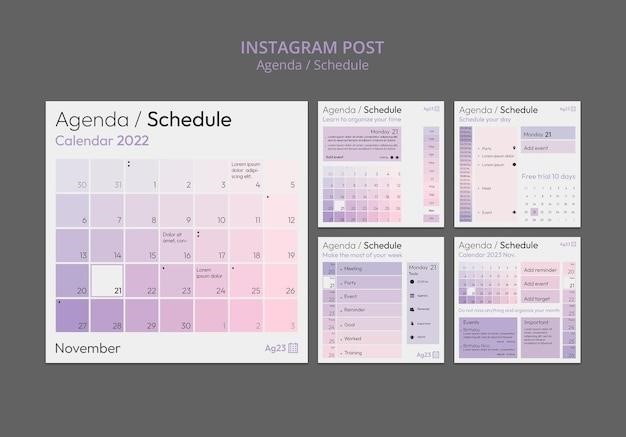Alabama Dove Hunting Season 2024-2025
The Alabama dove hunting season is a popular pastime for many hunters in the state. The season typically runs from September through January, with specific dates and bag limits varying by zone. You can find detailed information on the 2024-2025 Alabama dove hunting season, including dates, bag limits, and zone-specific regulations, in the official Alabama Hunting and Fishing Guide.
Season Dates and Zones
The 2024-2025 Alabama dove hunting season is divided into two zones⁚ the North Zone and the South Zone. The North Zone encompasses all counties in Alabama except those listed below for the South Zone. The season dates and shooting hours for each zone are as follows⁚
North Zone⁚
- September 7⁚ 12⁚00 noon until sunset (Afternoon Shooting Only)
- September 8 ⎼ October 20⁚ One-half hour before sunrise until sunset (All Day)
- November 23 ⎼ December 1⁚ One-half hour before sunrise until sunset (All Day)
- December 2 ⎼ January 19⁚ One-half hour before sunrise until sunset (All Day)
South Zone⁚
- September 14⁚ 12⁚00 noon until sunset (Afternoon Shooting Only)
- September 15 ⎼ October 20⁚ One-half hour before sunrise until sunset (All Day)
- November 23 ⎼ December 1⁚ One-half hour before sunrise until sunset (All Day)
- December 2 — January 19⁚ One-half hour before sunrise until sunset (All Day)
South Zone Counties⁚ Baldwin; Coffee; Covington; Dale; Escambia; Geneva; Henry; Houston; and Mobile.
It is important to note that the season dates and shooting hours are subject to change, so it is always best to check the official Alabama Hunting and Fishing Guide for the most up-to-date information.
Bag Limits
The bag limit for dove hunting in Alabama during the 2024-2025 season is 15 doves per day. This limit applies to both mourning doves and white-winged doves. It is important to note that the bag limit is per person, not per group, and that hunters must possess a valid Alabama hunting license and dove permit.
The bag limit for doves is designed to ensure sustainable populations of these birds. Hunters are expected to follow the bag limit regulations and to dispose of any unused doves properly. A dove hunting permit is required for hunters of any age, even those who are exempt from the hunting license requirement.
In addition to the daily bag limit, there are also some other regulations that hunters should be aware of⁚
- Hunters are allowed to possess a total of 45 doves in their possession at any one time.
- Hunters are prohibited from hunting doves on Sundays.
- Hunters are prohibited from using electronic calls or decoys to attract doves.
Hunters should always check the official Alabama Hunting and Fishing Guide for the most up-to-date information on bag limits and regulations.
Hunting Regulations
Dove hunting in Alabama is governed by a set of regulations designed to ensure the safety and sustainability of both hunters and the dove population. These regulations cover a wide range of aspects, from the use of firearms to the proper identification of doves.
One of the most important regulations is the requirement for hunters to possess a valid Alabama hunting license and a dove permit. These permits can be obtained from the Alabama Department of Conservation and Natural Resources (ADCNR). In addition to the hunting license and permit, hunters must also follow specific regulations regarding the use of firearms and the proper identification of doves.

Hunters must use shotguns with a maximum gauge of 10 and a maximum capacity of 3 shells. They are also required to use non-toxic shot, such as steel or bismuth, when hunting doves. This regulation is in place to protect the environment and prevent lead poisoning in wildlife.
Hunters should be able to identify doves correctly to avoid accidentally shooting other protected birds. It is essential to know the difference between mourning doves, white-winged doves, and other birds that may be found in the same areas.
The ADCNR also provides a detailed guide on dove hunting regulations, which includes information on hunting hours, bag limits, and other important regulations. It is crucial for hunters to familiarize themselves with these regulations before heading out to the field.
Dove Hunting Tips
Dove hunting in Alabama can be a rewarding experience, but it requires preparation and skill. Here are some tips to increase your chances of success during the dove hunting season⁚
First, scout for good hunting locations. Doves often congregate near water sources, agricultural fields, and areas with dense vegetation. Look for signs of dove activity, such as droppings, feathers, and feeding patterns.
Next, set up your hunting blind or stand strategically. Choose a location that provides cover and concealment, while also allowing you a clear view of the area you plan to hunt.
Consider using decoys to attract doves. Doves are social birds and are often drawn to the presence of other doves. Place your decoys in a natural-looking pattern to mimic a flock of doves.
Be patient and wait for doves to come within shooting range. Doves can be notoriously skittish, so avoid making sudden movements or loud noises.
Finally, practice your shooting skills. Dove hunting requires accuracy, as doves are small and fast-flying birds. Use a shotgun with a choke that is appropriate for dove hunting.
Dove Species in Alabama
Alabama is home to several species of doves, but the most common and sought-after by hunters are the mourning dove and the white-winged dove. These birds are migratory, arriving in Alabama in the late summer and fall, and departing in the winter and early spring.
Mourning doves are the most abundant dove species in Alabama. They are easily recognized by their distinctive “mourning” call, which sounds like a soft, mournful coo. Mourning doves are typically gray-brown in color with a long, pointed tail.
White-winged doves are larger and more brightly colored than mourning doves. They have white patches on their wings, which give them their name. White-winged doves are less common than mourning doves in Alabama, but they are still a popular target for hunters.
Other dove species that can be found in Alabama include the Inca dove, the Eurasian collared dove, and the ground dove. However, these species are not typically hunted in Alabama.
Dove Hunting Resources
For the most up-to-date and accurate information on dove hunting in Alabama, including season dates, bag limits, and regulations, it’s essential to consult the official resources provided by the Alabama Department of Conservation and Natural Resources (ADCNR). The ADCNR website, www.outdooralabama.com, is a valuable resource for hunters.
The ADCNR also publishes an annual Alabama Hunting and Fishing Guide, which includes detailed information on all hunting seasons in the state, including dove hunting. This guide is available online and at various retailers throughout Alabama.
In addition to the ADCNR, there are several other organizations that offer resources for dove hunters in Alabama. These include⁚
- The Alabama Wildlife Federation⁚ Provides information on wildlife conservation and hunting in Alabama.
- The National Wild Turkey Federation⁚ Offers resources for turkey hunters, including information on dove hunting in Alabama.
- The National Rifle Association⁚ Provides information on hunting and firearms safety.
By utilizing these resources, dove hunters in Alabama can ensure they are well-informed and prepared for a safe and successful hunting season.

Alabama Hunting Season Overview
Alabama offers a diverse array of hunting opportunities for enthusiasts of all levels. From the thrill of pursuing white-tailed deer to the challenge of bagging a wild turkey, Alabama’s landscapes provide ample hunting grounds. The state’s hunting seasons are carefully regulated by the Alabama Department of Conservation and Natural Resources (ADCNR) to ensure the sustainable management of wildlife populations.
The ADCNR sets specific dates for various hunting seasons, and these dates vary by species and location. For example, the deer hunting season might begin in September for bowhunters and extend through January for gun hunters. The turkey season typically runs from March to May. The ADCNR also establishes bag limits for each species, ensuring that hunting remains responsible and does not threaten wildlife populations.
To participate in any hunting activity in Alabama, hunters must obtain a valid Alabama hunting license. These licenses are available for purchase through the ADCNR website or at authorized retailers throughout the state. The specific types of licenses required vary depending on the species being hunted and the hunter’s age and residency status.
Alabama Hunting Licenses and Permits
Before embarking on your hunting adventure in Alabama, it’s crucial to ensure you have the necessary licenses and permits. The Alabama Department of Conservation and Natural Resources (ADCNR) manages the licensing process, ensuring that hunters comply with regulations and contribute to wildlife conservation efforts.
For most hunting activities in Alabama, a valid hunting license is required. The specific types of hunting licenses available include⁚
- Resident Hunting License⁚ This license is for residents of Alabama and allows them to hunt various species within the state.
- Non-Resident Hunting License⁚ This license is for non-residents of Alabama and allows them to hunt within the state, with specific restrictions depending on the species.
- Youth Hunting License⁚ This license is available for hunters under the age of 16 and allows them to hunt certain species with specific restrictions.
In addition to a hunting license, some hunting activities may require additional permits. For instance, hunters pursuing certain species, like migratory birds, may need a federal duck stamp. It’s essential to consult the ADCNR website or contact their offices for the most up-to-date information on specific licenses and permits required for your intended hunting activity.
Important Safety Considerations
Dove hunting, like any outdoor activity, carries inherent risks. To ensure a safe and enjoyable experience, it’s essential to prioritize safety precautions. Here are some critical safety considerations to keep in mind⁚
- Firearm Safety⁚ Always treat firearms with the utmost respect and follow the four basic rules of firearm safety⁚ Always point the muzzle in a safe direction, keep your finger off the trigger until ready to shoot, treat every firearm as if it’s loaded, and be sure of your target and what’s beyond it.
- Hunting Gear⁚ Wear appropriate hunting gear, including bright orange clothing to enhance visibility and protective eyewear to shield your eyes from debris and flying projectiles.
- Hunting Location⁚ Choose a safe hunting location, free from obstacles and potential hazards; Be aware of your surroundings and avoid hunting in areas with high pedestrian traffic or near residential areas.
- Weather Conditions⁚ Be mindful of weather conditions and postpone your hunt if conditions are dangerous, such as during thunderstorms or extreme heat.
- First Aid⁚ Carry a well-stocked first-aid kit and be prepared to handle minor injuries. Know how to administer basic first aid and be familiar with emergency procedures.
- Hunting Companions⁚ Always hunt with a trusted companion. This allows for additional safety measures, such as someone keeping an eye on you while you’re shooting, and provides assistance in case of an emergency.
By adhering to these safety considerations, you can significantly reduce the risk of accidents and ensure a safe and enjoyable dove hunting experience.
